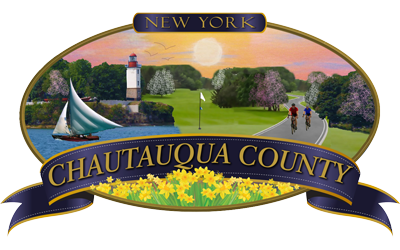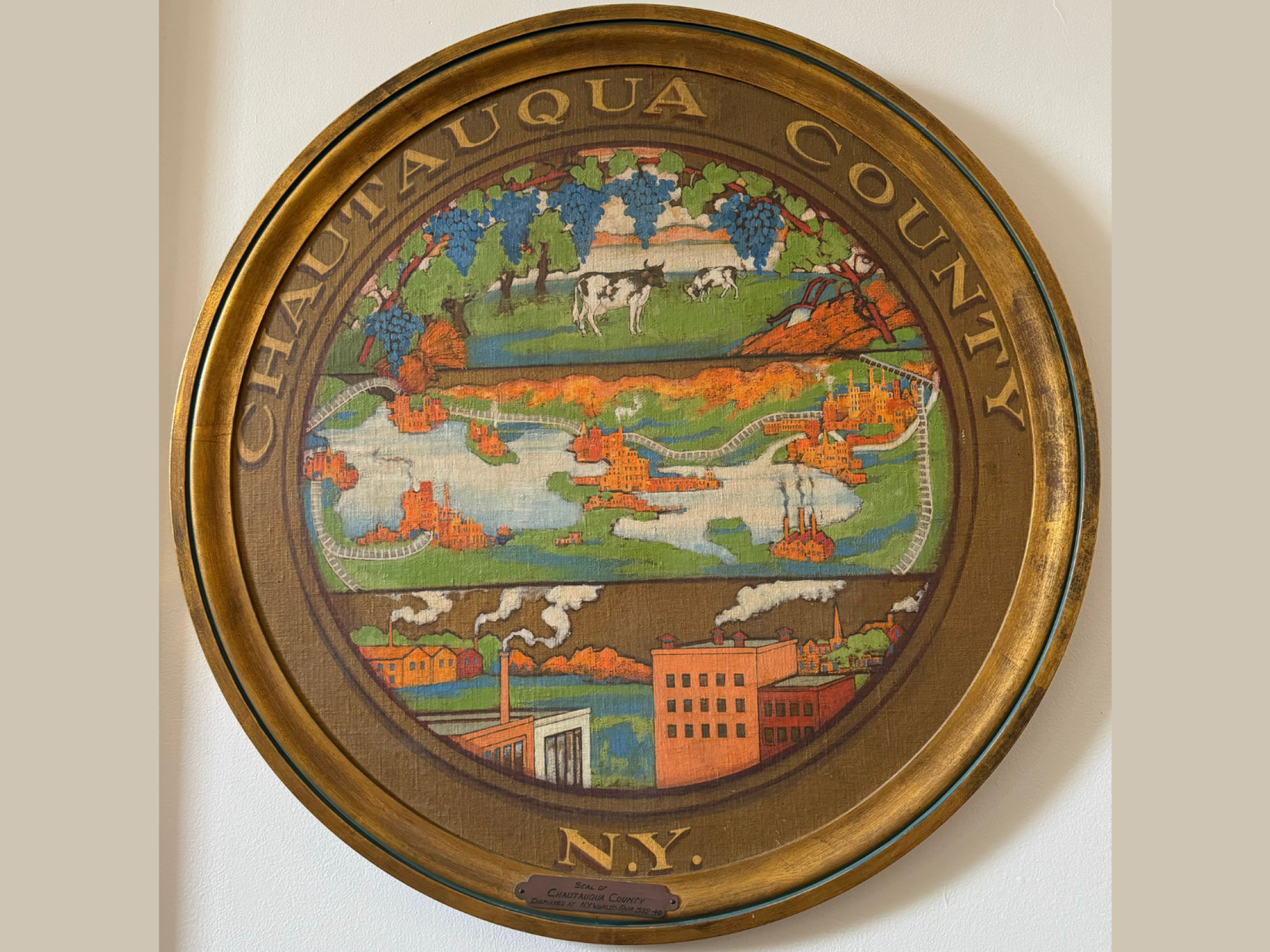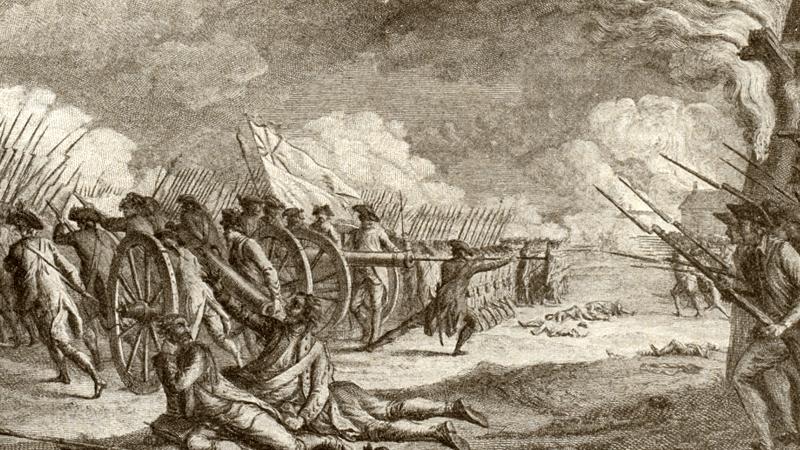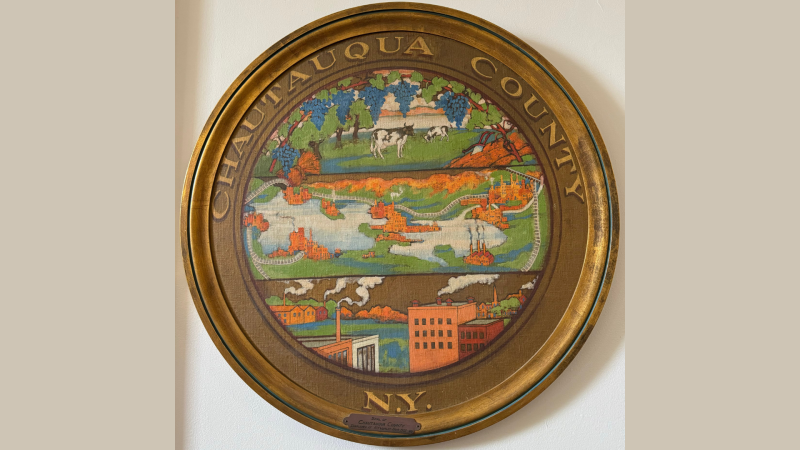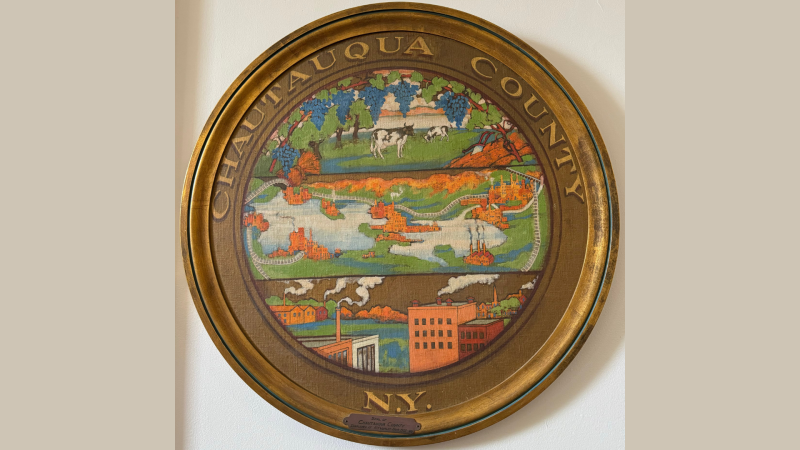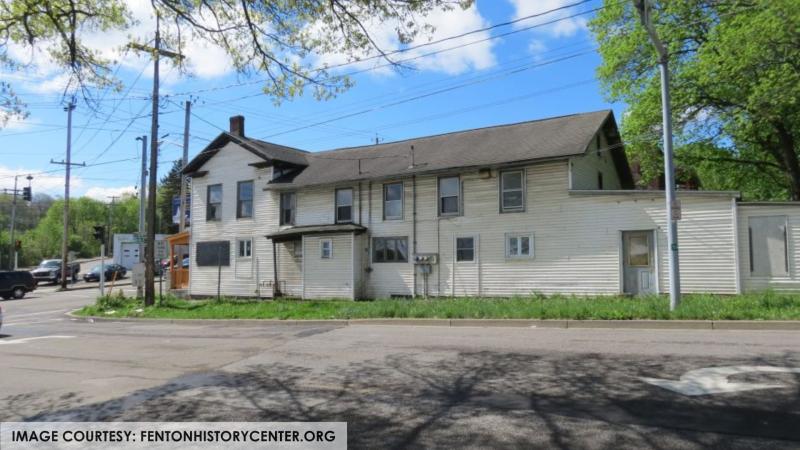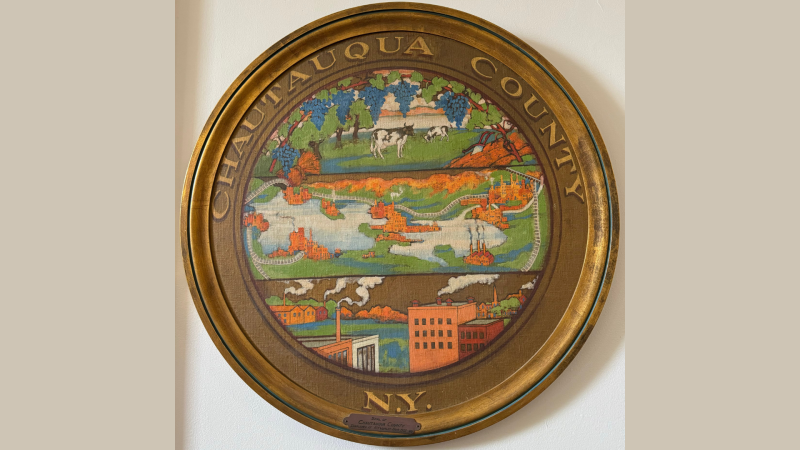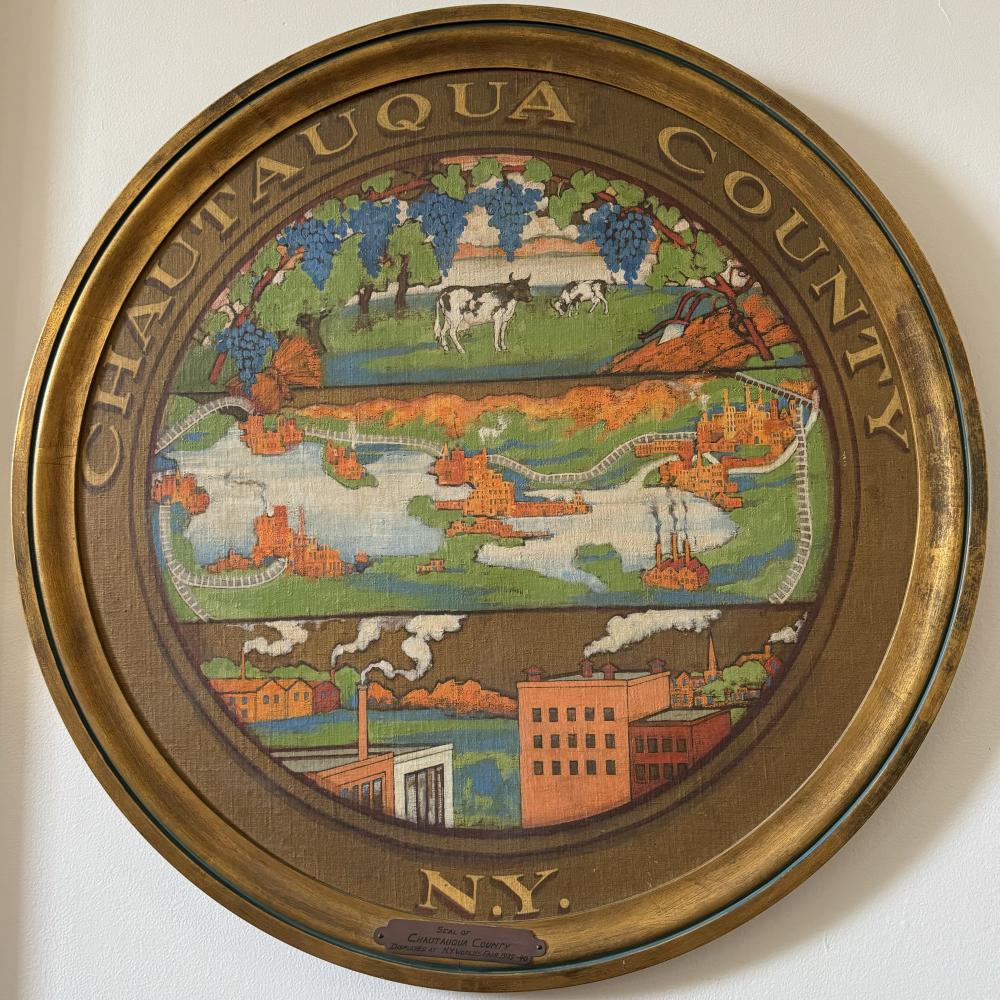
(Seal of Chautauqua County displayed at the New York World's Fair 1939-1940.)
Research by Norman Carlson, Chautauqua County Historian
From long-forgotten canal plans and famous musical appearances to historic fires and the arrival of the first automobiles, this week in Chautauqua County history reflects the county’s growth, resilience, and travel improvements. Here’s a look at events from April 20 through April 26 throughout the years:
April 20
1825 – The New York State Legislature authorized a survey for transportation canals in Chautauqua County. The project never came to fruition.
1830 – Mayville was officially incorporated as a village.
1860 – Land was purchased by the Catholic Church for what is now known as the Old Catholic Cemetery in Jamestown.
1889 – Jamestown Water Works was bought by American Guarantee of Pittsburgh. It was later acquired by the city government in 1903.
1914 – Jamestown Mayor Samuel Carlson declared a public “war on flies,” a common public health initiative of the time.
1950 – Celoron began chlorinating its sewage effluent—an early step in local wastewater treatment.
1966 – Nuclear waste reprocessing officially began at the West Valley site in neighboring Cattaraugus County.
1969 – Busti's own Norman Carlson played two shows on bass with bluegrass legend Bill Monroe and the Blue Grass Boys in Beanblossom, Indiana.
2003 – The Ethan Allen furniture plant in Mayville closed. It had operated as Kling Furniture prior to 1962. (The Frewsburg plant closed in June 2001.)
April 21
1906 – The Chautauqua County chapter of the American Red Cross was organized.
1939 – The historic Prendergast mansion in Kiantone was destroyed by fire.
2006 – St. Susan’s Soup Kitchen moved out of the St. James School in Jamestown. It relocated to the Helping Hands building on Water Street.
April 22
1822 – A massive hollow walnut tree fell near Silver Creek. It was later exhibited in New York City and London as a curiosity.
1851 – The Erie Railroad’s first inspection train reached Dunkirk, completing the world’s longest railroad line at that time.
1873 – The boundaries of Jamestown were extended three-quarters of a mile in all directions, absorbing the area known as Dexterville.
1891 – Most of Jamestown’s prostitutes were driven out of town by the Social Purity Club.
1933 – The Jamestown Journal reported gold at Panama Rocks, valued at $6 per ton. Nothing ever came of the claim.
2010 – Lois Gibbs, nationally recognized for her activism in the Love Canal environmental crisis, visited Fredonia.
April 23
1897 – John Allen was arrested in Jamestown for horse theft.
1901 – Jamestown received 6–8 inches of snow.
1901 – Steel cable replaced hemp rope on the Bemus Point ferry, improving safety and durability.
1942 – The old armory in Brooklyn Square, Jamestown, was destroyed by fire.
1950 – A new Busti Federated Church house was dedicated, replacing one lost to fire. It remains in use today.
1953 – Clymer held its first-ever Tulip Festival.
1956 – The Lady Grace became the first steamboat to reach Olean since 1837.
1976 – The inaugural Fredonia College (SUNY) Folk Music Weekend kicked off.
1981 – The historic Water Street Bridge at Levant was relocated and later designated a county historic property for its engineering significance.
1995 – The Hornburg tire fire began in Sinclairville.
April 24
1834 – The first recorded murder in Chautauqua County took place in Fredonia.
1834 – Mayville Academy was incorporated.
1856 – The steamboat C. C. Dennis was launched on Chautauqua Lake.
1864 – The Dunkirk & Fredonia Street Railway Company was chartered. It was originally horse-drawn.
1894 – The Chautauqua House hotel in Mayville burned down.
1956 – The Busti Swedish Mission Church house, built in 1878 by Swedish immigrants, was slated for demolition.
1958 – The steamboat City of Jamestown was sold to Glen Solomonson.
1963 – The Fenton Historical Society was officially formed and named in Jamestown.
April 25
1857 – Sheriff Milton Smith’s three daughters thwarted a jailbreak in Mayville—a bold act of bravery.
1867 – A lot between the Methodist and Baptist churches in Busti was deeded to the town as a playground. It was later sold to the Federated Church in 1950.
1900 – The first two automobiles arrived in Jamestown.
1901 – New York became the first state to require automobile license plates. The cost? Just $1.
1949 – The Jamestown Sun published its first special issue. Its first regular issue followed on April 28.
1959 – The St. Lawrence Seaway opened to shipping, transforming regional trade routes.
1976 – King Carl XVI Gustaf of Sweden visited Jamestown.
April 26
1876 – Groundbreaking took place for roads and streets at Point Chautauqua.
1900 – Jamestown carpenters and contractors agreed on a standardized nine-hour workday.
1910 – World-famous actress and singer Lillian Russell appeared in Jamestown.
1924 – The Elks Club opened at 123 East Fourth Street in Jamestown.
1950 – Lakewood began chlorinating its sewage effluent, mirroring Celoron’s efforts.
1979 – Jamestown’s Army Reserve unit was called up for 11 days of prison guard duty in Auburn.
1997 – J.C. Penney reopened its store at the Chautauqua Mall in Lakewood. The store had previously closed in 1986 after its original 1971 opening.
